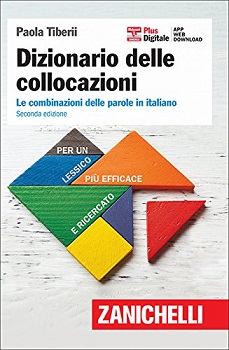Italian CEFR resources
Technology is making it much easier to learn foreign languages and look up unfamiliar words. Just think of all the online resources you can find, including dictionaries and machine translators!
However, there are pitfalls with online resources. Machine translators often suggest the first meaning of the word, the most common one, when there is no context to indicate what the true meanings of the word should be. That is why I would like to give you some links to the best Italian dictionaries that you can consult offline.
Don’t worry: I will dedicate a very large section of this article to free online resources. As you will see, some of them are real gems that you should immediately add to your browser favorites. Let’s start!
Bilingual dictionaries
Monolingual dictionaries
Other Italian dictionaries
Online tools
Wordreference
Wordreference is the one online bilingual dictionary I can’t do without. Not only it can be used for different languages, but its entries are detailed enough to include example sentences and idiomatic expressions.
For those who are social, there is also an active forum community where you can post questions and help other learners out.
sapere.it
The dictionaries by sapere.it are very straightforward to use, so they come close second after Wordreference. You will find both a monolongual and bilingual dictionary to meet all needs.
Its entries are of the wall-of-text type, but you will soon learn to love how comprehensive they are. They even list idioms and colloquial expressions!
Treccani
A monolingual dictionary like Treccani‘s may not be the most useful resource for a beginner of Italian, but it’s an invaluable resource for more advanced students who want to know what an Italian word means rather than learn how to translate it into another language.
There is no official language authority in Italy like Germany’s Gesellschaft für deutsche Sprache, but Treccani Institute comes very close. It’s not official, but it’s a very authoritative society and its publications are of high quality.
Its design may be confusing to beginners, and I admit the website is quite packed with useful information. I suggest reaching an intermediate to advanced language level in Italian before using this resource.
It’s free and it’s online. It’s everything a student could ever want!
Sabatini Coletti dictionary
The Sabatini Coletti monolingual dictionary can be found online on the Corriere della sera website (a local newspaper). Its entries are less crowded than those on the Treccani site, so even intermediate students can use its definitions.
Google Translate
Is this a joke?, you ask.
Well, Google Translate can be pretty good when it comes to translating single words that refer to specific objects, like “spoon”, cucchiaio, or “washing mashine”, lavatrice. It’s pretty easy to use and you can also listen to the word’s pronunciation.
Its translations aren’t always high quality, but Google Translate supports nearly 80 languages, so it’s a valuable resource. My advice is to double-check every translation, though.
For more complete and reliable translations, however, I recommend using DeepL below.
DeepL
DeepL translator is without question the best AI machine translator on the market. Not only can it translate simple Italian sentences perfectly into English, but it can also churn out good-quality translations from Italian to languages other than English.
Of course, it has its own shortcomings, as it doesn’t do well with long sentences (and Italian loves sentences with 3+ subordinate clauses). But if you need a bullet-proof translation of a more demanding text, ask a native’s opinion or hire a professional translator!
Linguee
Linguee is another of my favorite online resources because it relies on context rather than direct word translation into Italian. This kind of resource is known as a contextual dictionary.
It has a database of ready-made translations with different language combinations. When you search for a word or a string of words, the system will look for all instances of those words in its database and show them to you along with their translations.
In fact, Linguee is very similar to a translation memory. It’s owned by the same team that brought DeepL into the translation scene.
Reverso
Reverso is similar to Linguee, in that it will search for any given sentence in a huge database of translations with thousands of example sentences. However, translations are not always up to scratch because many of them look like MT outpit, so use it carefully.
It also has a translator tool, but it’s not up to par with DeepL. Its online orthography checker is very useful, though.
Slangopedia
I know the Slangopedia website leaves a lot to be desired when it comes to design. But never judge a book by its cover. This is a dictionary of colloquial expressions used by today’s youth. Some of them I don’t even know myself!
The thing is, it hasn’t been updated in a few years (which is why the page design isn’t very polished), but it’s still very relevant.
More free Italian resources
You might want to keep learning Italian online with these free Italian resources:







